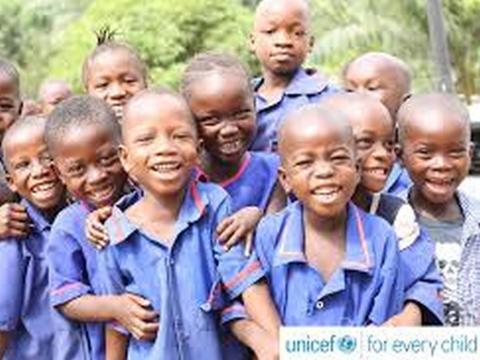By Mohamed Jaward Nyallay
When the dust settles on the fight against COVID-19, then Sierra Leone will realize that children are perhaps the worst affected demography in this country by the pandemic, and that is the case across the world.
This impact is not measured by counting how many children have been killed by the Coronavirus, because the virus has largely spared children. Rather, the impact on children is measured by the sheer scale of disruption it has had on their growth process.
Children all over the world face a deep uncertainty about the future. And in worse cases this uncertainty could quickly turn into anxiety, depression and many other bad outcomes.
“The mental health and psychosocial impact of restricted movement, school closures and subsequent isolation are likely to intensify already high levels of stress, especially for vulnerable children. The economic impact of the pandemic has led to decreased household income in many homes. The effects of loss of income can filter down to children, as this may result in deprivations of basic necessities and also expose children to abuse and exploitation,” Dr. Suleiman Braimoh, UNICEF Representative in Sierra Leone, told Politico.
Dr Braimoh’s comment encapsulates a range of issues that children have already started facing in Sierra Leone.
According to data collected by UNICEF and Save the Children, the number of children living in monetary poor households worldwide could increase to 106 million by the end of the year, as a result of the Corona virus pandemic.
The same data set shows that 188 countries worldwide imposed a nationwide school closure; this includes Sierra Leone. Some 1.5 billion Children and young people have been affected by these, UNICEF said in a report on its website.
Measuring the actual consequence in terms of educational outcome is a bit early for Sierra Leone, but the test will start with public examinations that are set to start at the end of this month.
Much of government’s response has been on saving lives and livelihoods, which has benefitted children in a way. It is difficult to know the specific interventions government has done to protect the well-being of children. Government bureaucracy prevented Politico from knowing what specifically the Ministry of Gender and Children’s Affairs was doing to alleviate challenges of children. Despite several requests for an interview, the ministry did not grant us audience.
But the in the wake of the pandemic, one of the most worrying challenge facing children has been teenage pregnancy. This is a familiar threat which took away thousands of girls from schools during the Ebola epidemic some five years ago.
UNFPA figures states that 14,000 girls in Sierra Leone got pregnant during the Ebola outbreak in the country between 2014 and 2016. Some 11,000 of them were already in school before the outbreak. It is safe to say that most of them would have been spared had the Ebola outbreak not hit Sierra Leone.
Save the Children’s Country Director in Sierra Leone, Heather Campbell, was quoted during the launch of an app on adolescent’s reproductive health, saying: “This pandemic threatens to be catastrophic for girls in Sierra Leone. During the Ebola outbreak teenage pregnancy soared due to knock-on effects like school closures and increased poverty.”
Schools have been closed in the country for three months, until partial reopening on July 1st this year to prepare pupils in public examination classes.
A headcount on how many girls might have been impregnated during that break is unknown, for now.
The pandemic and the threat of teenage pregnancy coincide with an alarming level of reported Sexual Gender Based Violence cases across the country. The Rainbow Initiative, an organization that supports victims of rape and other gender based violence, said from January to May this year, it had recorded 1, 272 cases of SGBV cases in its centers across five districts.
There is a possibility that many more cases could be out there, unreported. The slow action and sometimes inaction of the judiciary, coupled with the complicity of police and parents in many cases have compounded the problem.
The pandemic, judiciary, police and families have all been complicit one way or the other to contribute to the figures from the Rainbow Initiative. And this is so despite a new Sexual Offences Act been passed in September last year.
All of these circumstances will form a huge bundle on the psyche of children which may lead to depression, the UNICEF country representative, Braimoh, said.
“Prolonged distress may result in mental health conditions and long-term repercussions on the functioning and coping capacity of both children and caregivers,” Dr Braimoh said.
“UNICEF is therefore working closely with key line Ministries, Civil Society Partners, Religious Leaders and various community structures to mitigate the impact of the outbreak on the lives of children and their families,” he added
In a country where psychiatric care is almost non-existent, the current circumstance of children may only compound the challenge on a frail health infrastructure. The need for specialized care for children has therefore never been more urgent.
In rural and urban cities across the country, children have been drafted as laborers by most families.
In a city like Freetown, even before the pandemic, hundreds of children were out engaged in street trading; from selling sachets of water, plastic bags, to running market tables.
How government handles all these issues is important on the wellbeing of children and could be crucial on the development of children in Sierra Leone.
Copyright © 2020 Politico Online








